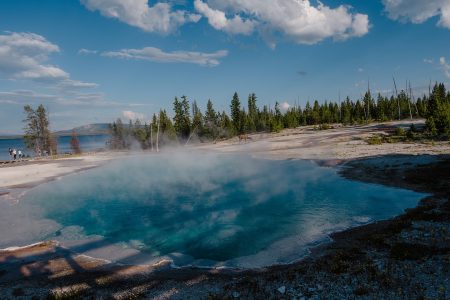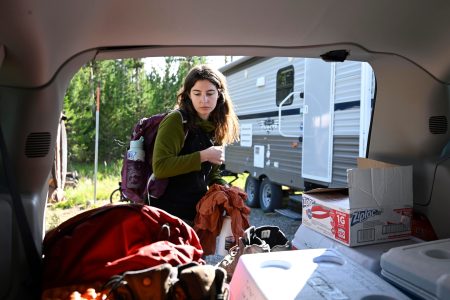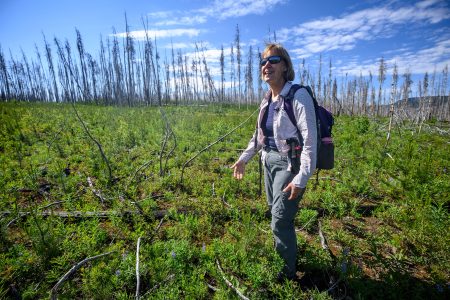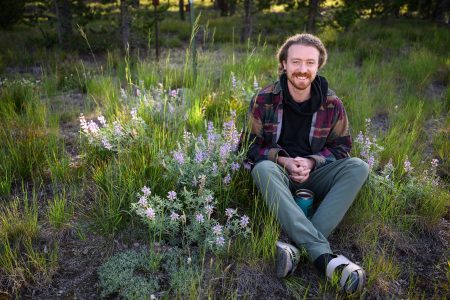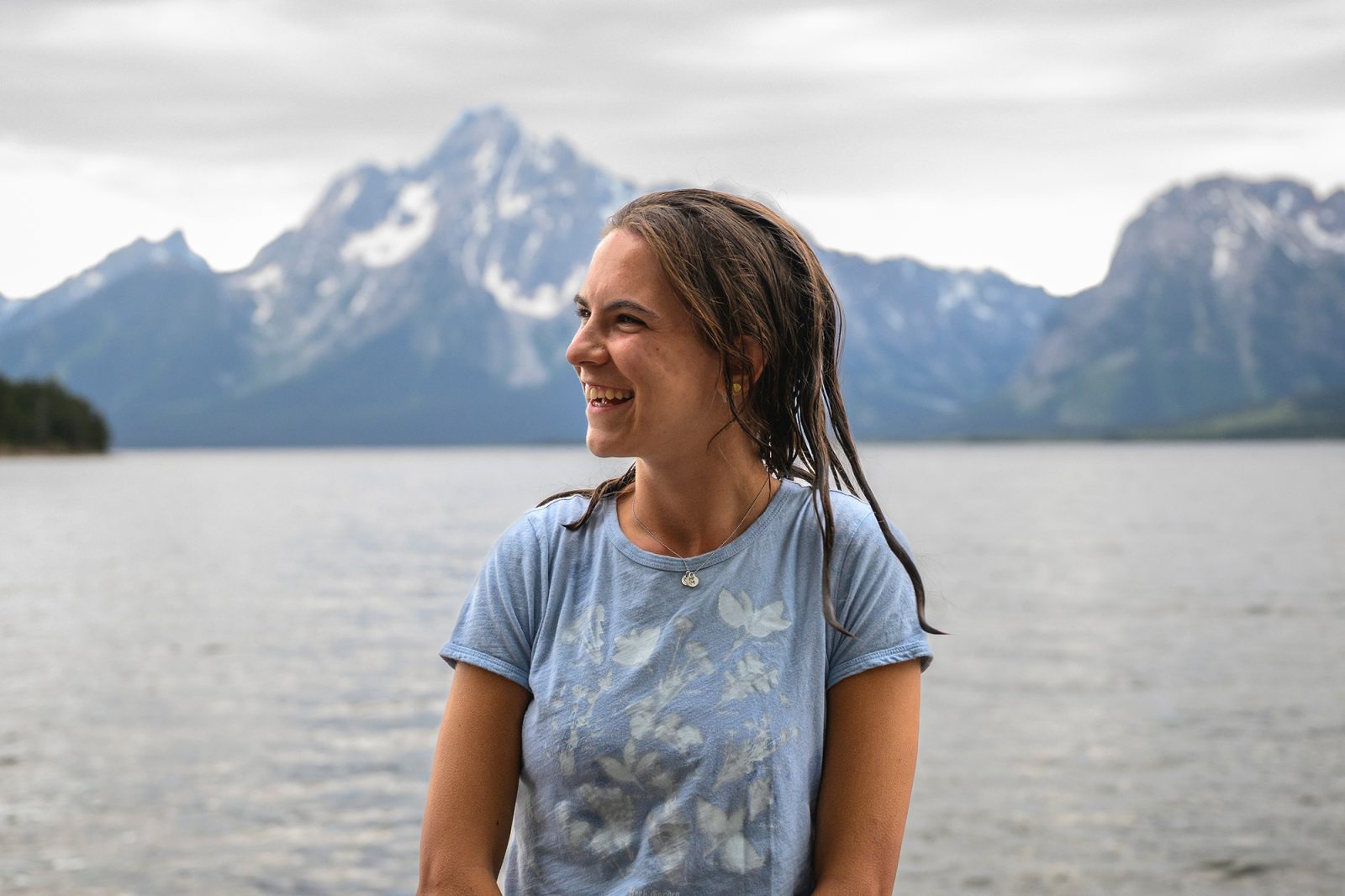
Lucy: Preparing for the future
“Do we want a sledgehammer or a mallet?”
“Yes.”
Lucy McGuire, a 2023 UW graduate and manager of Monica Turner’s integrative biology lab, makes a check mark on a long list of gear from which she’s reading. Graduate students Arielle Link and Timon Keller flurry around the lab in Birge Hall on UW–Madison’s campus, stacking equipment on the table in front of her.
Long spools of tape measures, clip boards, a locking bucket full of bear spray, bug repellent, a portable tent, twine, a handheld GPS …
As a pile quickly forms on the table, Lucy inspects each piece of gear. She wants to be sure they’ve chosen the most optimal equipment and assess each item for needed repairs before they drive 1,300 miles west for the summer field season. Her job involves a lot of hard organizational work, but after spending the summer of 2022 in Yellowstone as an undergraduate researcher in the Turner lab, Lucy jumped at the opportunity to help further advance the team’s research.
Driven by her passion for the Greater Yellowstone Ecosystem and her endless curiosity, Lucy helps everyone stay organized and conduct their projects smoothly in the field. Whether they need an extra hand, a morale boost or an in-the-weeds debrief on the discoveries of the day, Lucy is there.






